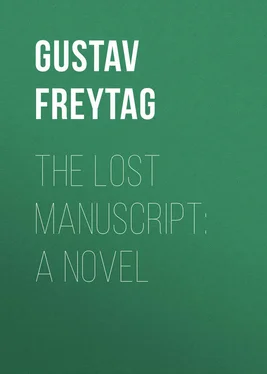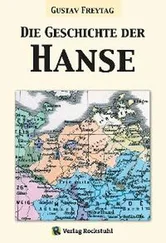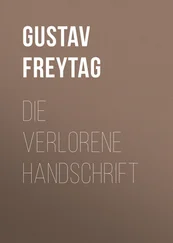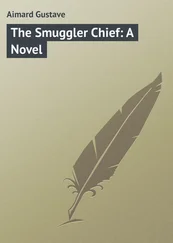Gustav Freytag - The Lost Manuscript - A Novel
Здесь есть возможность читать онлайн «Gustav Freytag - The Lost Manuscript - A Novel» — ознакомительный отрывок электронной книги совершенно бесплатно, а после прочтения отрывка купить полную версию. В некоторых случаях можно слушать аудио, скачать через торрент в формате fb2 и присутствует краткое содержание. Жанр: foreign_antique, foreign_prose, на английском языке. Описание произведения, (предисловие) а так же отзывы посетителей доступны на портале библиотеки ЛибКат.
- Название:The Lost Manuscript: A Novel
- Автор:
- Жанр:
- Год:неизвестен
- ISBN:нет данных
- Рейтинг книги:5 / 5. Голосов: 1
-
Избранное:Добавить в избранное
- Отзывы:
-
Ваша оценка:
- 100
- 1
- 2
- 3
- 4
- 5
The Lost Manuscript: A Novel: краткое содержание, описание и аннотация
Предлагаем к чтению аннотацию, описание, краткое содержание или предисловие (зависит от того, что написал сам автор книги «The Lost Manuscript: A Novel»). Если вы не нашли необходимую информацию о книге — напишите в комментариях, мы постараемся отыскать её.
The Lost Manuscript: A Novel — читать онлайн ознакомительный отрывок
Ниже представлен текст книги, разбитый по страницам. Система сохранения места последней прочитанной страницы, позволяет с удобством читать онлайн бесплатно книгу «The Lost Manuscript: A Novel», без необходимости каждый раз заново искать на чём Вы остановились. Поставьте закладку, и сможете в любой момент перейти на страницу, на которой закончили чтение.
Интервал:
Закладка:
Gustav Freytag
The Lost Manuscript: A Novel
PART I
"A noble human life does not end on earth with death. It continues in the minds and the deeds of friends, as well as in the thoughts and the activity of the nation."
PUBLISHERS' PREFACE
Gustav Freytag has expressed the central idea of his novel The Lost Manuscript in the motto which he has written for the American edition:
"A noble human life does not end on earth with death. It continues in the minds and the deeds of friends, as well as in the thoughts and the activity of the nation."
This idea of the continuity and preservation of soul-life permeates the whole work. It meets us at every hand. We observe the professor in his study, ever eager to fathom the thoughts of the great thinkers of the past and imbuing his students with their lofty spirit. We sympathize with the heroine of this novel, the strong, pious Saxon maiden, in her religious and intellectual development; we behold her soul enlarging under the influence of unusual and trying situations; we watch her mentally growing amid the new ideas crowding in upon her. We enjoy the droll characterizations of the half-educated, of Mrs. Rollmaus and the servants, in whose minds the mysteries of soul-life appear in the shape of superstitious notions. And we see, again, the consequences of wrong-doing, of errors, and of mistakes continuing like a heavy curse, depressing the mind and hindering its freedom. And this last provokes a wholesome reaction and is finally conquered by unshirking courage in honest spiritual combat.
Illustrations of psychical laws showing the connections and continuity of the threads in the warp and woof of human soul-life, are found indeed in all the works of Gustav Freytag. The great novelist anticipated the results that have of late been established by the experiments of modern psychology. He says in his Autobiographical Reminiscences:
"What a man's own life accomplishes in the formation of his character, and the extent to which it fully develops his native capacities, we observe and estimate even in the best cases only with imperfect knowledge. But still more difficult is it to determine and comprehend what the living have acquired in the way of advancement and hindrance from their parents and ancestors; for the threads are not always visible that bind the existence of the present to the souls of generations past; and even where they are discernible, their power and influence are scarcely to be calculated. Only we notice that the force with which they operate is not equally strong in every life, and that sometimes it is too powerful and terrible.
"It is well that from us men usually remains concealed, what is inheritance from the remote past, and what the independent acquisition of our own existence; since our life would become full of anxiety and misery, if we, as continuations of the men of the past, had perpetually to reckon with the blessings and curses which former times leave hanging over the problems of our own existence. But it is indeed a joyous labor, at times, by a retrospective glance into the past, to bring into fullest consciousness the fact that many of our successes and achievements have only been made possible through the possessions that have come to us from the lives of our parents, and through that also which the previous ancestral life of our family has accomplished and produced for us."
Is not this a revival of the old idea of the transmigration of souls? To be sure, the soul is not a material thing made of an invisible and airy substance, fluttering about after death and entering into another body. There are no material migrations of soul taking place, however tenuous the substance of the soul might be imagined to be. The memories of the present, our recollection of our past existence, depend on the fact that the living matter which is constantly replacing itself in us by other living matter, like the water in a wave rolling on the surface of the sea, always assumes the same form. It is the form that is constantly reproducing. In this sense, man (that is his soul) is the product of education. The soul of the future man stands in the same relation to our soul as the future edition of a book, revised and enlarged, stands to its present edition. 1 1 Compare the library scene in the chapter "A Day of Visits," Vol. 1, p. 265, of this novel.
One man impresses his modes of thought, his habits, his methods of action, his ideals upon his fellow men, and thus implants his very soul into their lives. In this sense a transmigration of souls is taking place constantly, and he who opens his eyes will see it. No one has given plainer examples of this truth in the pleasant shape of novelistic narration, than Gustav Freytag.
The Lost Manuscript is in more than one respect a representative work, incorporating the spirit of the times. It is interesting from its descriptions of University circles, of country life, and of the vanity fair at the smaller princely courts of Germany. Yet these interesting descriptions gain in value, because we are taught by the author to comprehend the secret laws that rule the growth of, and determine the hidden interconnections between, the souls of men.
The plot of The Lost Manuscript . Gustav Freytag briefly characterizes as follows:
"In the upright soul of a German scholar, through the wish to discover something of great worth for knowledge, are cast juggling shadows, which, like as moonlight distorts the forms in the landscape, disturb the order of his life, and are at last overcome only through painful experiences."
Concerning the invention of the plot as well as of the characters of The Lost Manuscript , the following account from Gustav Freytag's Reminiscences will be of interest:
"In this story I depicted circles of life that were familiar to me since student days: the agricultural life of the country and the University life of the city. The reader will, I trust, discover in the characterizations of the work, that I have drawn cheerfully and unrestrainedly from this life at large. In the figures of the academical world he would seek in vain for special models, since Mr. and Mrs. Struvelius, Raschke, and others are types to whom in every German University single personalities will correspond. In the character of Professor Werner my friend Haupt has been recognized. But one can find in it only so much of the manner and method of Haupt, as a poet dares to take up of the being of a real man without interfering with the freedom of artistic creation, and without offending him through lack of delicacy. Haupt himself perceived with pleasure a certain remote resemblance, and of this connection with the romance he gave expression in his own way; having on several occasions, when sending me the prospectus of his Berlin lectures on the Latin historiographer Ammianus, good-humoredly signed himself 'Magister Knips,' which latter personage plays a sorrowful part in the story, and is only prevented from hanging himself by the thought of his professional researches in the Latin author mentioned.
"Some years before the appearance of my 'Debit and Credit' Haupt had unexpectedly requested me to write a novel. This accorded at that time with secret designs of mine, and I promised him. To The Lost Manuscript he contributed, however, in quite another manner. For as we were once sitting alone with one another at Leipsic, before he was called to Berlin, he disclosed to me in the greatest confidence, that somewhere in a small Westphalian town in the loft of an old house, lay the remains of a convent library. It was very possible that among them there was hidden a manuscript of the lost Decades of Livy. The master of this treasure, however, was, as Haupt had learned, a surly and quite inaccessible gentleman. Thereupon I put forward the proposition to travel together to the mysterious house, move the old fellow's heart, hoodwink him, and, in case of extreme necessity, drink him under the table, to secure the precious treasure. As Haupt had some confidence in my powers of seduction when joined with a good glass, he declared himself agreeable therewith, and we reveled in and developed to the fullest extent the pleasure we had in prospect of enlarging the tomes of the Roman historian for a grateful posterity. Nothing came of the affair; but the remembrance of the intended trip greatly helped me in developing the action of the novel.
Читать дальшеИнтервал:
Закладка:
Похожие книги на «The Lost Manuscript: A Novel»
Представляем Вашему вниманию похожие книги на «The Lost Manuscript: A Novel» списком для выбора. Мы отобрали схожую по названию и смыслу литературу в надежде предоставить читателям больше вариантов отыскать новые, интересные, ещё непрочитанные произведения.
Обсуждение, отзывы о книге «The Lost Manuscript: A Novel» и просто собственные мнения читателей. Оставьте ваши комментарии, напишите, что Вы думаете о произведении, его смысле или главных героях. Укажите что конкретно понравилось, а что нет, и почему Вы так считаете.












